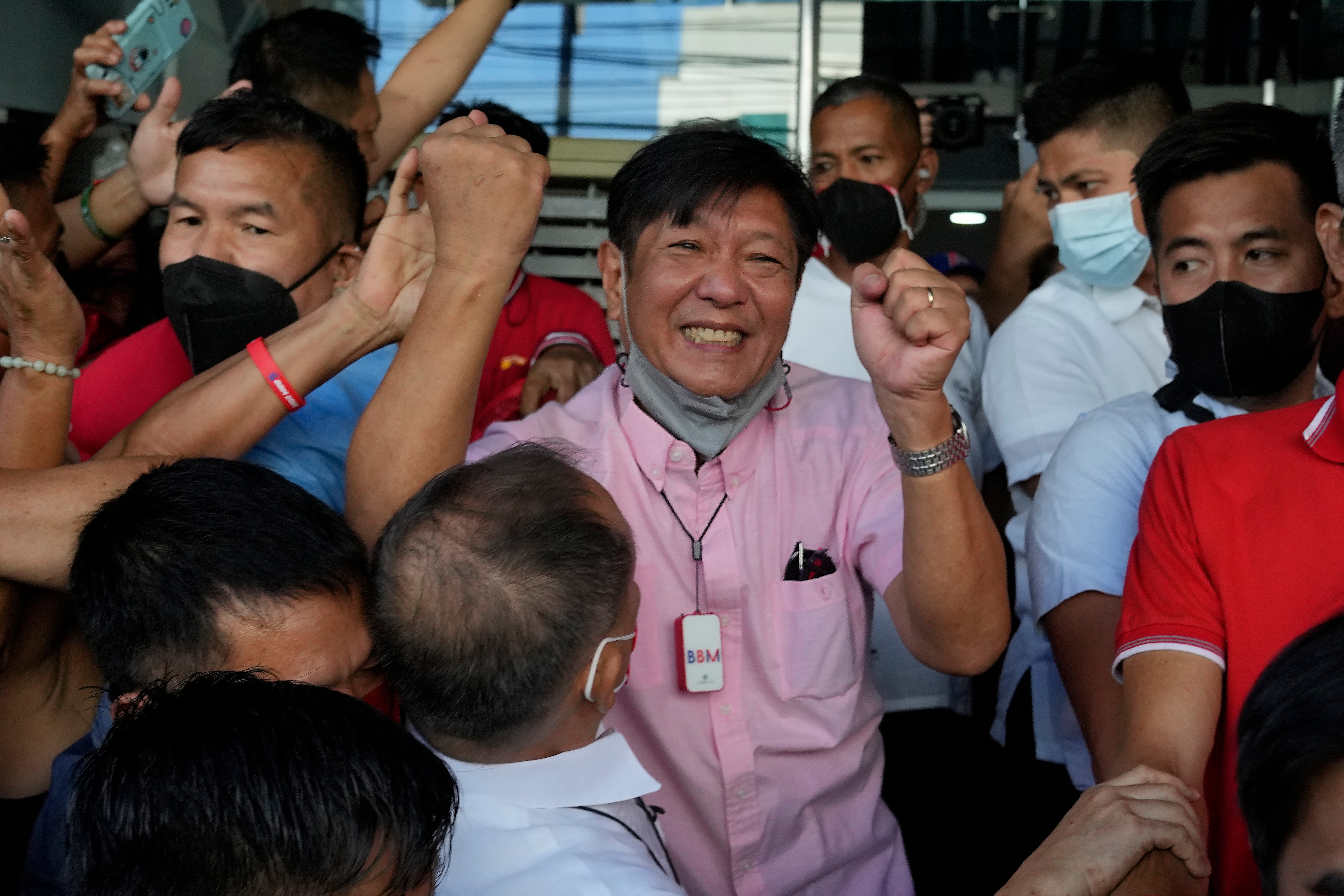Activists ask top court to void Marcos Jr's presidential win
Human rights activists have asked the Philippine Supreme Court to block Congress from proclaiming Ferdinand Marcos Jr. as the next president, alleging that he lied when he said he had not been convicted of any crime

Human rights activists have asked the Philippine Supreme Court to block Congress from proclaiming Ferdinand Marcos Jr. as the next president, alleging that he lied when he said he had not been convicted of any crime.
The Commission on Election had twice dismissed the petition and six other similar complaints to cancel Marcos Jr.'s candidacy papers ahead of the May 9 vote. The petitioners elevated the case to the highest court on Monday, saying Marcos Jr. had been convicted of tax evasion, which should have permanently barred him from seeking public office.
Most of the petitioners are leaders of groups representing survivors of martial law in the 1970s under late dictator Ferdinand Marcos, the father of the presumptive next president. They want the court to temporarily block the Senate and the House of Representatives from undertaking an official canvassing of votes starting next week that would eventually proclaim Marcos Jr. as the winner.
“Our petition notes that a candidate’s imminent victory cannot cure his ineligibility,” said Fides Lim, spokeswoman of one of the human rights groups.
“If the Supreme Court were to allow such a brazen lie to trump the rule of law, all substantive eligibility requirements in all future elections can be circumvented by ineligible candidates who happen to secure a victory,” she said.
Marcos Jr. had more than 31 million votes in an unofficial count in what’s projected to be one of the strongest majority mandates for a Philippine president in decades. His vice-presidential running mate and daughter of the outgoing populist leader, Sara Duterte, appeared to have also won with a massive margin.
His electoral triumph is an astonishing reversal of the army-backed but largely peaceful “People Power” revolt in 1986 that forced his father out of office following years of massive human rights atrocities and plunder that Marcos Jr. never acknowledged.
Unofficial counts also show that the allies of Marcos Jr. and Sara Duterte were set to capture most of the 300 seats in the House of Representatives and half of the 24-seat Senate that was up for election, and likely the chambers' top leaderships.
The 12 winning senators, including lone opposition Sen. Risa Hontiveros, who ran for reelection, were to be proclaimed Wednesday by the Commission on Elections.
All key challengers of Marcos Jr., including current Vice President Leni Robredo, a human rights lawyer, and former boxing star Manny Pacquiao, have conceded defeat.
U.S. President Joe Biden, Chinese President Xi Jinping and other world leaders have congratulated Marcos Jr. and Duterte on their huge victory and the relatively smooth conduct of the elections. The separately elected president and vice president are set to take office on June 30 for a single, six-year term after Congress confirms the results.
Marcos Jr. and Duterte have defended the legacies of their fathers.
Court cases and legal issues still hound the late dictator’s family, including payment of a huge estate tax, a 2018 corruption conviction of his widow, Imelda Marcos, which is on appeal, and full compensation of thousands of victims of torture, detentions, disappearances and other atrocities committed in the martial-law era when he was in power.
A brutal anti-drug crackdown launched by outgoing President Rodrigo Duterte, which killed thousands of mostly petty drug suspects, has sparked an investigation by the International Criminal Court as potential crimes against humanity. The outgoing leader has said he would likely face more criminal complaints when he steps down on June 30.
Bookmark popover
Removed from bookmarks